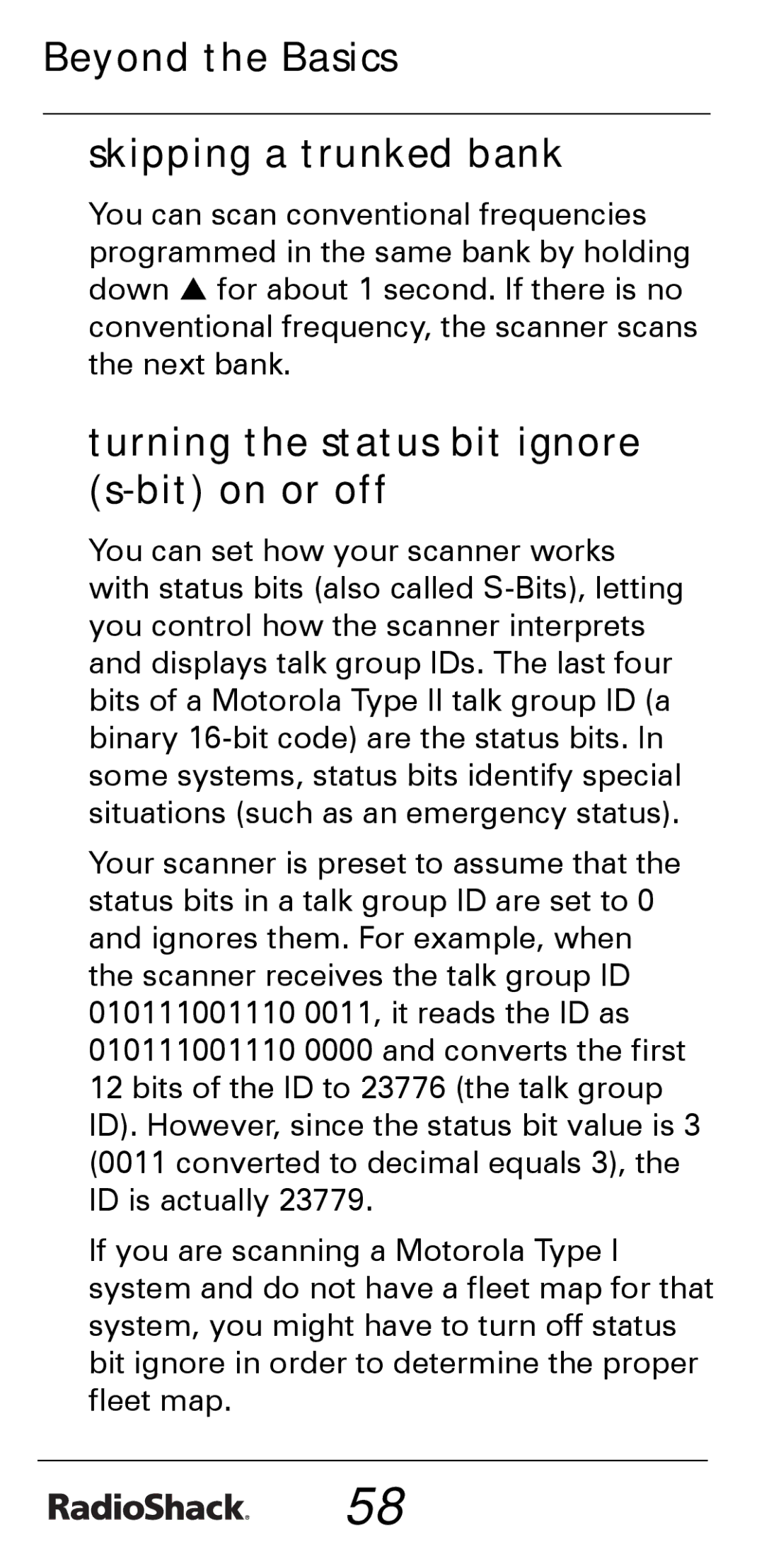
Beyond the Basics
skipping a trunked bank
You can scan conventional frequencies programmed in the same bank by holding down S for about 1 second. If there is no conventional frequency, the scanner scans the next bank.
turning the status bit ignore (s-bit) on or off
You can set how your scanner works with status bits (also called
Your scanner is preset to assume that the status bits in a talk group ID are set to 0 and ignores them. For example, when the scanner receives the talk group ID 010111001110 0011, it reads the ID as 010111001110 0000 and converts the first 12 bits of the ID to 23776 (the talk group ID). However, since the status bit value is 3 (0011 converted to decimal equals 3), the ID is actually 23779.
If you are scanning a Motorola Type I system and do not have a fleet map for that system, you might have to turn off status bit ignore in order to determine the proper fleet map.
58
